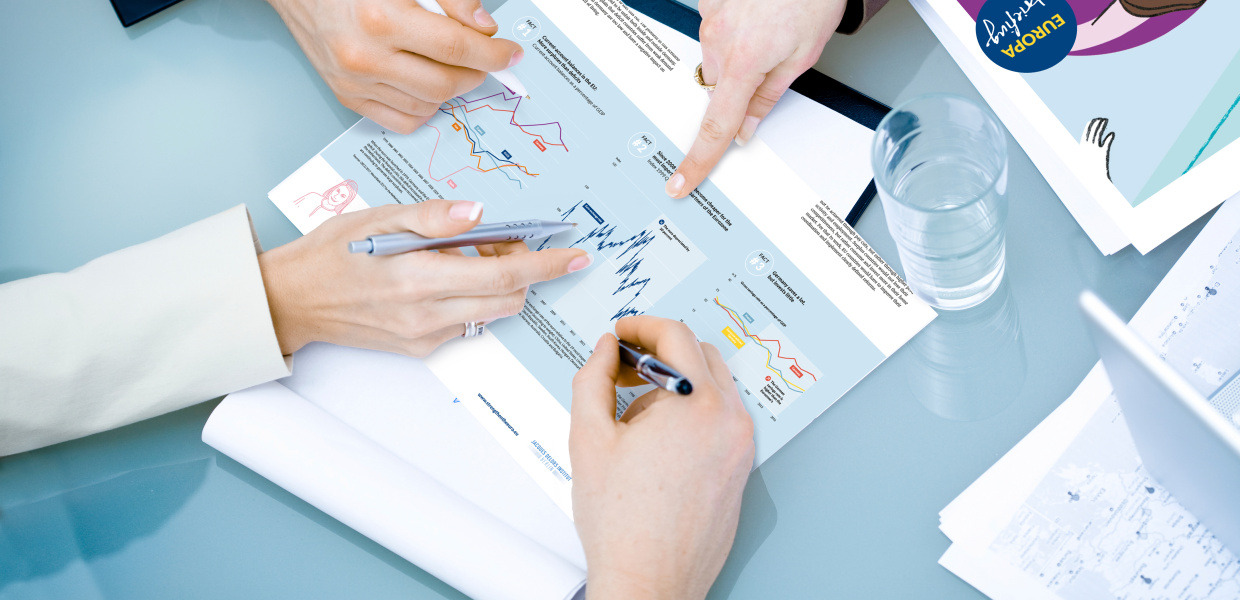Economic imbalances in the EU are constantly recurring and are often criticized. The present Europa Briefing examines whether the imbalances are threatening the EU and analyzes the impact of the euro on foreign trade. On the one hand, a fairly weak euro makes exports cheaper and imports more expensive relative to the rest of the world, thereby contributing to the development of surpluses. A strong euro has the reverse effect. On the other hand, it is impossible in the Eurozone to correct imbalances between member states by revaluing or devaluing the national currency.
A stronger euro would not automatically correct the imbalances in the EU. If the European Central Bank tapered its bond buying programme, the euro might appreciate as a result and strengthen imports relative to exports. However, this would simply alter the Eurozone’s trade deficit with the rest of the world overall, but not the imbalances among the euro-area countries. One also needs to take into account that Germany, for example, had a surplus for many years prior to the introduction of the euro.
